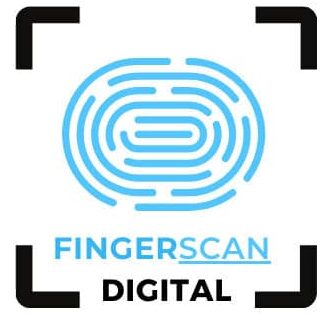
In the world of immigration, the FBI background check is one of the most important and often misunderstood steps. Whether you’re applying for a green card, work authorization, U.S. citizenship, or asylum, your fingerprint-based background check can determine whether your application is approved, delayed, or denied.
In this comprehensive report from the FBI Check & Immigration News Journal, we break down the current procedures, delays, changes under DHS and USCIS policies, and what immigrants and their families should know in 2025.
What Is an FBI Background Check for Immigration?
The FBI background check is a fingerprint-based report generated through the Integrated Automated Fingerprint Identification System (IAFIS). It reveals any federal or state criminal history that might impact immigration eligibility.
These reports are typically requested by:
USCIS (U.S. Citizenship and Immigration Services)
U.S. Department of State
DHS (Department of Homeland Security)
U.S. Consulates and Embassies abroad
The goal is to ensure that applicants have no prior criminal convictions, immigration violations, or fraud concerns that would bar them from legal residency, work authorization, or citizenship.
What Biometrics Are Collected?
Applicants must attend a biometrics appointment at a USCIS Application Support Center (ASC), where the following are taken:
Digital fingerprints
Photograph
Signature
This data is sent to the FBI, which returns a detailed report to USCIS.
Delays at this stage can stall the entire immigration process. That’s why many applicants now turn to certified providers like Fingerscan Digital Inc, offering FBI Fingerprinting in San Jose and Las Vegas with 24-hour results.
What’s Changing in 2025?
In 2025, wait times for biometric appointments and background check processing have increased significantly due to:
A surge in immigration applications
Staffing shortages at USCIS
Ongoing system maintenance and data review backlogs
This has led to:
Delays in I-485 (Green Card), I-765 (Work Permit), and N-400 (Citizenship)
Postponed visa interviews
Longer timelines for asylum and DACA cases
Third-party options like Fingerscan Digital help ease this burden by offering FD-258 fingerprint cards and digital FBI checks outside of the USCIS system.
Who Needs an FBI Background Check for Immigration?
The following immigration cases almost always require an FBI background check:
Adjustment of Status (I-485)
Employment Authorization (I-765)
Naturalization (N-400)
Asylum or TPS applications
Special Immigrant Juvenile Status (SIJS)
Consular Processing via U.S. Embassies
Applicants abroad often need to submit an FBI Identity History Summary, along with an apostille, when filing through a consulate.
What Happens If You Have a Record?
A criminal history doesn’t always mean you’ll be denied immigration benefits—but it can cause complications.
Expunged or sealed cases may still show up in FBI records
Misdemeanors may require waivers (e.g., I-601)
Felonies may render you inadmissible
That’s why many attorneys and paralegals recommend requesting your own FBI background check before submitting a case. Self-checks through Fingerscan Digital Inc are fast, affordable, and confidential—ensuring you catch any surprises early.
Immigration Fingerprint Cards for Overseas Applicants
Immigration applicants abroad don’t have access to USCIS biometric appointments. Instead, they must:
Get ink fingerprints on an FD-258 card
Submit the card to the FBI for a background check
Apostille the results for international legal use
These checks are required for:
Marriage visas (CR1/IR1)
I-601 or I-212 waivers
Visa processing delays due to inadmissibility
Fingerscan Digital provides fingerprint cards and apostille services in San Jose and by mail for out-of-state and overseas clients.
Apostille of FBI Reports for Immigration Use
For those submitting FBI background checks abroad, apostilles are mandatory for document authentication. The U.S. Department of State processes apostilles, but delays can occur.
Fingerscan Digital offers apostille processing and FBI reporting as a bundled service, ideal for clients on a deadline or unsure of which authentication step is required.
How to Protect Yourself From Scams
Unfortunately, many immigration applicants fall victim to fraudulent fingerprinting services or unauthorized document preparers. Red flags include:
No physical office or business license
No registered process server ID (if serving documents)
No official FBI Channeler credentials
Always verify that the business providing your FBI background check is legitimate. Trustworthy providers like Fingerscan Digital Inc display their certifications and provide same-day receipts and confirmation emails.
Real Stories: How a Clean Record Changed Lives
Maria, a DACA recipient from San Jose, had her Adjustment of Status (green card) delayed due to a juvenile record. With a self-initiated FBI report through Fingerscan Digital, her attorney addressed the issue before USCIS could issue a denial.
The proactive use of a FBI background check near her in San Jose helped her avoid a costly delay and secured her green card within months.
Tips for Applicants: How to Stay Ahead
Request your FBI background check early
Use a provider that can return results within 24–48 hours
Verify which forms or waivers (I-601, I-212, etc.) require FBI documentation
If abroad, request an apostille for all U.S.-issued documents
Use a licensed fingerprinting provider with secure handling of your data
Where to Get FBI Background Checks in San Jose or Las Vegas
Fingerscan Digital Inc provides:
San Jose Office
434 Blossom Hill Rd, San Jose, CA 95123
Las Vegas Office
8784 S. Maryland Pkwy Suite 105, Las Vegas NV 89123
Final Thoughts
In 2025, as immigration scrutiny grows and USCIS delays continue, the role of FBI fingerprinting has never been more important. Whether you’re filing from San Jose, Las Vegas, or abroad—your ability to act early, choose the right provider, and ensure your record is clear can mean the difference between approval and denial.
With trusted services like Fingerscan Digital, immigrants now have tools to take control of the process, avoid surprises, and stay on track toward legal residency and citizenship.
